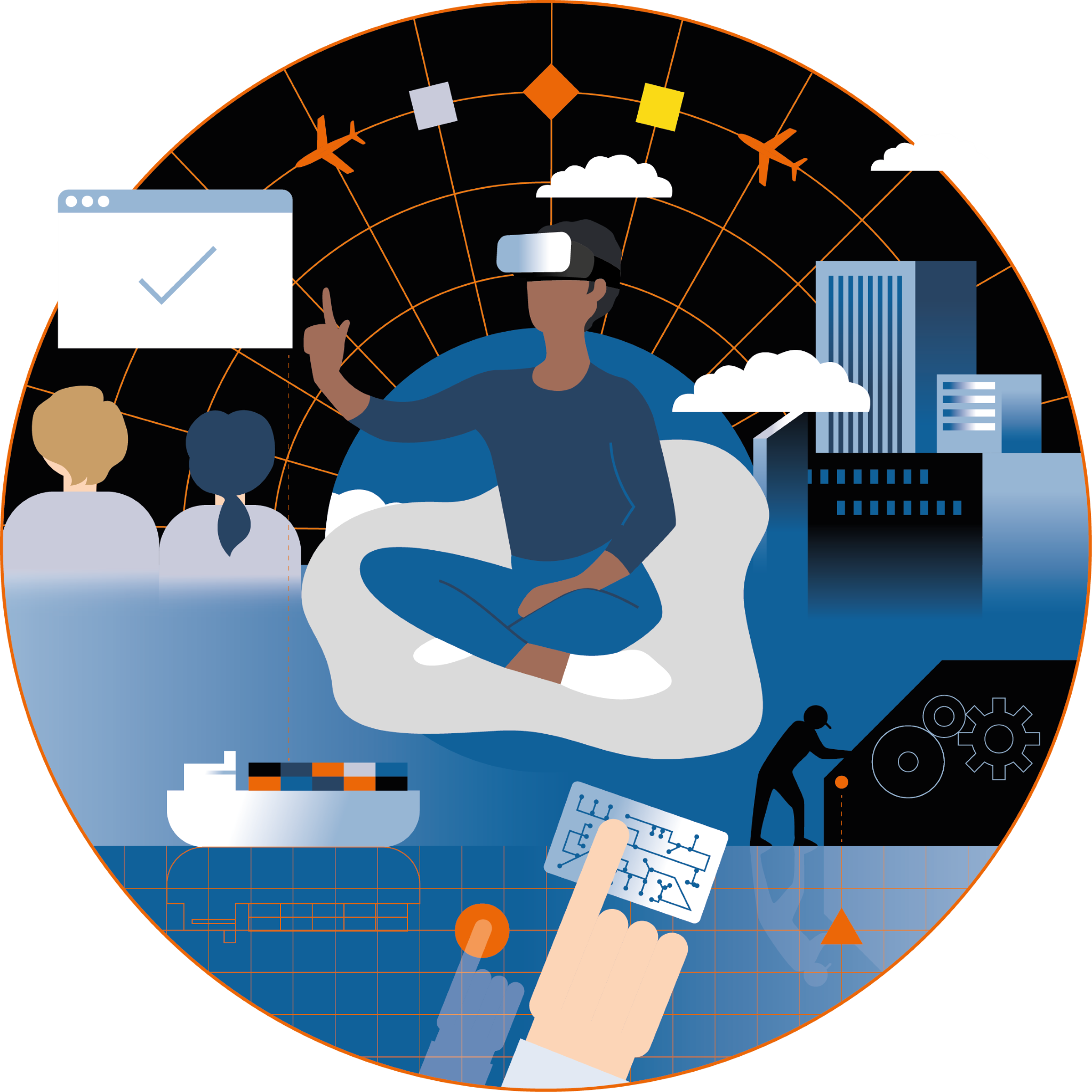Can industrial metaverse solve the labour shortage challenge?
Press release from VTT
Lately, we have met the term metaverse on various business videos and in demos. The environments presented have been magnificently built, and they have felt very realistic. Currently, the discussion mainly focuses on the world of entertainment and consumer applications. But could the biggest unidentified potential actually lie in the world of daily work? We are particularly interested in industrial work that involves more than sitting at a computer.
Industrial metaverse brings the physical and virtual work environments together and enables collaborative use of novel tools and shared practices between employees. However, the precondition for a metaverse – or any new technology, for that matter – to become more common is that people are willing, not forced, to widely adopt such solutions in both their private lives and at work.
In October, VTT launched its first human-driven metaverse project, in this case meaning putting the employee first, aimed at reforming industrial work with a group of selected companies. The companies involved represent both providers of industrial work, i.e., those using the solutions, and companies offering relevant solutions. They come from various sectors with complementing technologies. This creates foundations for finding scalable solutions across sectoral boundaries. The pioneering companies participating in the project are Valmet Automotive, KONE, Finavia, YIT, Granlund, Telia, ZOAN, Sulava, Dazzle, Augment and Nordkapp.
“The objective of the project is to identify work tasks in which the use of a metaverse would benefit both employees and the organisation. The use cases identified should contribute to the productivity of work, employee well-being, the attractiveness of work, and the achievement of sustainable development goals by, for example, increasing the number of place-independent work tasks,” says Karoliina Salminen, who leads the project at VTT.
Changing work tasks
Various sectors of industrial work are already experiencing ‘a labour shortage challenge’, perhaps even an emergency. Therefore, work tasks must be developed to encourage people to stay in their current jobs and to attract today’s young generations, future employees.
In the future, industrial employees must be able to collaborate with an increasingly versatile group of specialists and to use continuously developing technologies. Metaverse could be one of the ways of implementing the growing need for such collaboration and information sharing.
The starting point for the project is the transition of industrial work. One of the solutions examined are the opportunities provided by place-independent work outside the IT bubble, the main focus being on practical work carried out on the field.
“Hybrid work interests people, and this could serve as an incentive for future employees and thus improve the availability of expert workforce. Furthermore, performing dirty, boring and dangerous work tasks using new and innovative methods in collaboration with robots, AI assistants or, perhaps, autonomous vehicles enhances safety and meaningfulness of work,” Salminen says.
New innovations
The first stage of the project has focused on building a shared understanding of what an industrial metaverse means from the perspective of future work in particular. To see the definition, click here. This is the first step towards describing concrete work tasks using the new opportunities provided by the metaverse and identifying the technological and non-technological enablers they require.
During spring 2023, the project aims to generate many new innovative initiatives to provide technology companies with opportunities to create scalable solutions across sectoral boundaries for both domestic and global markets.
“We are now inviting companies interested in the subject to contact us well ahead of the next stage to contribute to the building of the future innovation and business ecosystem. Together, we will make Finland the leading country in place-independent industrial work,” says Markku Kivinen, Solution Sales Lead responsible for customer partnerships within the field at VTT.
Further information
Karoliina Salminen, ka****************@vt*.fi, +358 400 179311
Markku Kivinen, ma************@vt*.fi, +358 50 4871621
Originally published on 15 December.
Announcements are published as a service to readers. The sender is responsible for all content.
Announcements for publication can be submitted to pr***********@ar**************.com.
